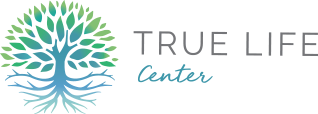Panic disorders can seriously disrupt a person’s life and interfere with their daily activities. It can help to learn about the different types of panic disorders and how they are diagnosed, treated, or managed. If you or a loved one are struggling with panic attacks, reach out to True Life Center at 858.202.1822. Our panic disorder treatment center offers personalized treatment plans that can help you find relief and improve your quality of life.
What Is a Panic Disorder?
A panic disorder is a type of anxiety disorder characterized by recurring and spontaneous panic attacks. These panic attacks are sudden bouts of intense fear or discomfort, which can manifest both physically and mentally. They often occur without warning, causing individuals to live in fear of when the next attack might strike.
Common Signs of a Panic Disorder
Panic disorders can have a wide range of symptoms, including:
- Heart palpitations or racing heart
- Sweating
- Trembling or shaking
- Shortness of breath or feeling like you are choking
- Chest pain or discomfort
- Nausea or upset stomach
- Dizziness or lightheadedness
- Chills or hot flashes
- Tingling or numbness in the body
- Fear of losing control or going crazy
- Fear of dying
These symptoms can vary in severity and duration, but they commonly peak within 10 minutes and then subside. Panic attacks can also be accompanied by intense feelings of anxiety or dread, making it difficult for individuals to function normally during an attack.
What Are Panic Attacks?
Panic attacks are characterized by a sudden rush of fear, usually accompanied by physical symptoms such as a racing heart, shortness of breath, trembling, sweating, and a fear of losing control or dying. These episodes can last from a few minutes to several hours, and the severity can range from mild to extreme.
A panic attack is your brain and body’s way of reacting to a perceived threat or danger, even when there is no real threat present. This can lead to individuals avoiding certain situations or places out of fear of experiencing another panic attack.
Does a Panic Attack Mean You Have a Panic Disorder?
Experiencing a panic attack does not necessarily mean you have a panic disorder. Panic attacks can be triggered by various situations, such as high stress or certain phobias. However, if you’re experiencing recurrent and unexpected panic attacks followed by at least one month of persistent concern about having another attack, you may have a panic disorder.
Types of Panic Disorders
There are several types of panic disorders, including:
Panic Disorder
This disorder is characterized by repeated, unexpected panic attacks and worry about future attacks.
Agoraphobia
This is a fear of places or situations that might cause panic, helplessness, or embarrassment. People with agoraphobia often avoid these situations or require a companion to confront them.
Social Anxiety Disorder
This involves a fear of social situations due to worry about humiliation, embarrassment, or judgment.
Specific Phobias
These are intense fears about specific objects or situations.
Generalized Anxiety Disorder
This involves constant, excessive worry about various aspects of life.
Post-Traumatic Stress Disorder (PTSD)
This can occur after experiencing or witnessing a traumatic event and can cause panic attacks.
Call True Life Center’s Panic Disorder Treatment Center Now
At True Life Center, we offer an integrative approach to treating panic disorders. Our team of doctors, psychiatrists, psychologists, and holistic providers collaborate to customize an individualized treatment program for each patient. We are not just a treatment facility. We are a luxury office designed with calming and soothing aesthetics to make you feel comfortable and at peace during your recovery journey. We understand that overcoming a panic disorder is not merely about eliminating symptoms but about nurturing the mind-body connection and empowering our patients to lead fulfilling lives.
If you or a loved one is struggling with panic attacks or a panic disorder, call True Life Center at 858.202.1822 or reach out online. We are here to help you find relief and improve your overall quality of life.







